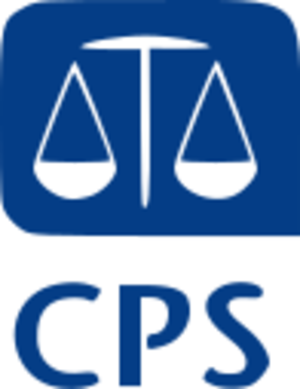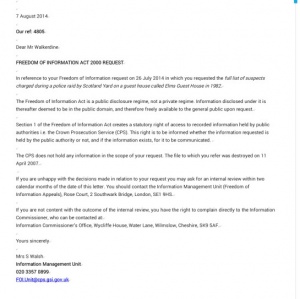Crown Prosecution Service
 | |
| Formation | 1986 |
| Parent organization | UK |
| Headquarters | Rose Court, 2 Southwark Bridge, London, SE1 9HS |
| Leader | Attorney General |
| Type | |
| Staff | 6,840 |
| Owner of | Crown Prosecution Service web site |
| Founder of | Crown Prosecution Service web site |
| The principal public prosecuting authority, a non-ministerial UK government department that conducts (almost) all criminal prosecutions in England and Wales. | |
Official narrative
The main responsibilities of the Crown Prosecution Service (CPS) are to provide legal advice to the police and other investigative agencies during the course of criminal investigations, to decide whether a suspect should face criminal charges following an investigation and to conduct prosecutions both in the magistrates' courts and the Crown Court.
Control
Although the official leader of the CPS is the Director of Public Prosecutions, the Attorney General for England and Wales "superintends" the CPS's work by having regular meetings and also answers for it in the UK Parliament. A small number of offences (including any under the Official Secrets Act) specifically require the Attorney’s permission to prosecute, and the Attorney can also claim "national security" grounds to influence the conduct of prosecutions.
VIPaedophile

The Mirror reported in 2015 that the claim of "national security" was used to prevent investigation into paedophilia amongst senior officials back in the 1980s.[1]
The CPS reported in response to a 2014 FOIA request that a file of Elm Guest House suspects was destroyed on 11 April 2007.[2]